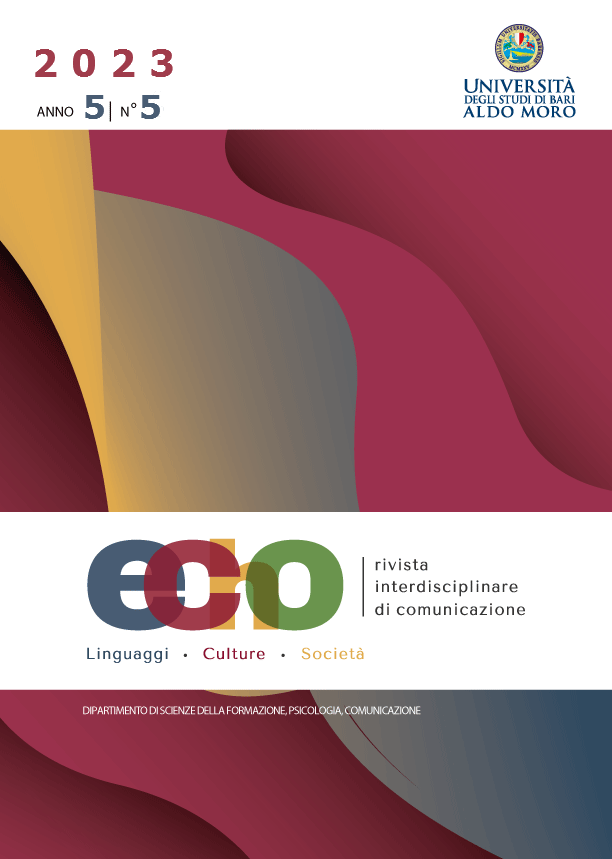La costruzione della memoria della guerra lontano dalla terra d’origine. I Commonwealth’s War Cemeteries nella geografia italiana
DOI:
https://doi.org/10.15162/2704-8659/1884Parole chiave:
“War Cemeteries”, “Collective Memory”, “War Memory”, “Environmental Sustainability”Abstract
As well as yesterday, the Memory of War is a more and more necessary matter, since any country finds the only possible antidote to violence and destruction in the social restoration of its own identity. Burial places have not only with the function of commemoration but also of narration, in order to display a clear point of view on historical events. The considerable significance of cemeteries is still a subject of deep interest in the Social Sciences. About the etymology of the word “cemetery”, semiologist Eugénie Bechoux has pointed out how the equivalent word koimêtêrion in Greek language – which means 'dormitory' - may be sufficient to exemplify the form of “collective negation” that accompanies the perception of the place, which in fact imitates the urban, living form with the aim of deceive the visitors and give them a positive experience. The Modern Era has been crossed by powerful considerations on life, death and society, questioning the different structures of places such as memorials. The rural cemetery, for example, was the outcome of the transformation that took place during the Nineteenth century in the Anglo-Saxon perception towards burial places, evolving and becoming more popular during and after the conflicts of the last century. The Kenyon Report of 1918, compiled by the inter-governmental organisation Commonwealth War Graves Commission (CWGC) for the commemoration of Commonwealth soldiers, followed this approach when established the criteria to build more than 20,000 memorial places worldwide. In Italy there are more than 100 of these burial places, graves or cemeteries adapting to the surrounding area. Interesting cases are Cassino, Gradara, Roma and Salerno War Cemeteries. The purpose of the article should be an investigation about the connections between these places and the local area, the perceptions from different social perspectives, together with a reflection about a tangible contribution related with issues of environmental sustainability.Downloads
Pubblicato
2023-12-22
Fascicolo
Sezione
Focus








